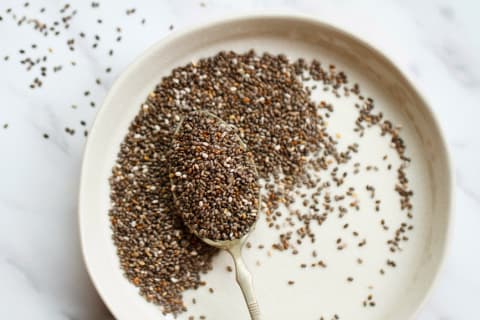Beyond highly processed junk food, another trap some vegans fall into is ignoring the need to supplement intelligently. This is not a limitation of the vegan diet but represents the state of the world with depleted soil and indoor lifestyles resulting in uniformly low vitamin intake. Most of the adults I seen in the clinic, whether their diet is vegan or otherwise, lack important nutrients that show up on the advanced testing I perform. The following list is what I add to my plant-based diet to maximize results (hint: The first three are the most important). By some estimates, 50 percent of vegans and 10 percent of vegetarians are deficient in vitamin B12. I recommend taking about 2,500 ug once a week, ideally as a liquid, sublingual, or chewable form for better absorption or 250 ug daily if that schedule works better for you. There is no known risk to taking larger amounts of B12. Direct sunshine on exposed skin for 20 to 30 minutes a day can provide adequate vitamin D, but, for many of us, oral supplementation is necessary. Vitamin D3 is the form most commonly recommended but is usually derived from animal sources such as lanolin. There are vegan versions of D3 now available and the standard recommendation is to supplement with 800 IU a day, but I start routinely with 2,000 IU a day and titrate up to reach blood levels of 50 to 70 ng/mL. Vegan diets are an amazing choice for health, promoting a clean planet and being mindful of the life of animals farmed for human consumption. Moving to a vegan diet is not only supported by thousands of medical research studies, but it is also endorsed by the United Nations, Oxford University, the USDA Food Guidelines, and the Association of Nutrition and Dietitians3. Although it may seem a bit of a hassle to add these six supplements to your plant-based routine, it’s important to be a “smart vegan” and make sure you’re giving your body everything it needs to function optimally. A cutting-edge nutrition deep dive taught by 20+ top health & wellness experts



